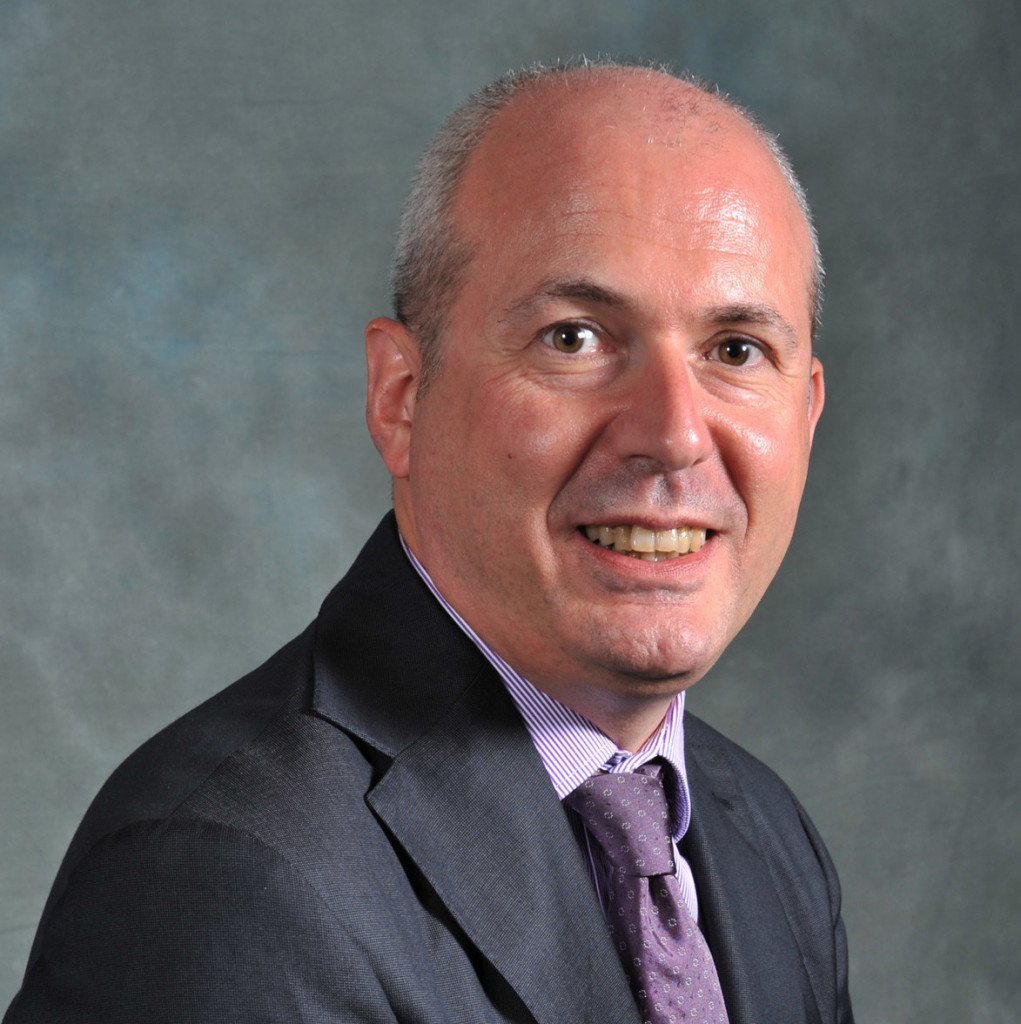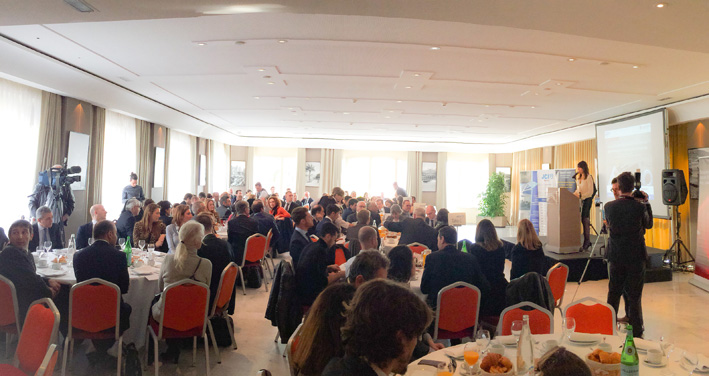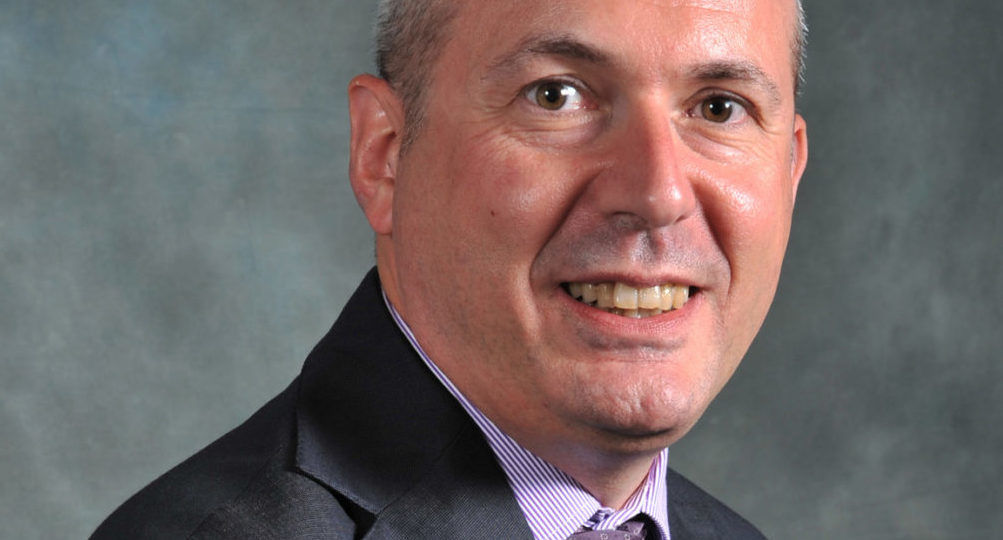
Monaco Open for Business: Serge Pierryves,
Director of Monaco’s Business Development Agency
ML: Tell us about your professional background.
SP: After getting a degree in Marketing and Communication, I started work, at the end of the 1980s, at the fashion house of Christian Lacroix in Paris, to help the designer’s partner. A few years later I joined the Monegasque Administration in the Tourism and Congress Department where I was appointed as Deputy Director in 2002. In 2006, as I was eager to take on a new challenge, I was given the position of Deputy to the Administrator of the State Property Authority, before becoming Director for Housing in 2008. I have been in my current position of Director of the Business Development Agency since 2010.
ML: Can you provide a few facts and figures about the Business Development Agency (Direction de l’Expansion Economique)?
SP: The Agency has a staff of 36. Last year, 1370 files for company creation and modification were dealt with compared to 1307 in 2016.
ML: Please explain the role of the Business Development Agency (BDA).
SP: The Business Development Agency was created by Sovereign Order in 1996 and modified in 2011. It consists of the Monaco Business Office, or the Front Office, and two functional centres of expertise: the General Administration, or Back Office, and the Intellectual Property Office.
The Business Development Agency is responsible for:
• Examining and providing administrative support for applications for the creation of new businesses and amendments to existing businesses
• Maintaining the Trade and Industry Register
• Following up court cases that come under its area of responsibility, as well as dealing with proposals to update legislative and regulatory provisions in force, and, if necessary, draft new legislation
• Monitoring business activities
• Examining applications, granting and monitoring financial aid programmes for businesses
• Issuing intellectual property rights certificates and registering on national registers.
The Business Development Agency is also entrusted with:
• Creating, maintaining and optimising relationships and contacts with all local professional and business partners
• Participating in prospection and economic development operations organised by the appropriate bodies.
ML: There other four other divisions – Business Start-up, Business Monitoring, Legal Services and Trade and Industry Register – which fall under the Business Development Agency. Can you provide an overview of these?
SP: The Business Start-up Division is made up of a team of six and is mainly in charge of processing applications for setting up new businesses or changing existing businesses.
As part of its policy to attract business, the Government of the Principality has recently streamlined the administrative procedures, with applications for authorisation being processed through a circuit of electronic validation. In the next few years, applications will be able to be made online.
The Business Start Up division is also in constant contact with local professionals and guides them in the implementation of their projects.
The Business Monitoring Division is made up of six staff. It’s responsible for checking and on-site auditing (company turnover, registered offices, balance sheets and investigations), for processing requests for transferring a company’s head office and for temporary work permits, as well as for monitoring the hotel commission.
It is also in charge of organising and monitoring commissions whose judgement is required before any administrative sanction.
The Legal Services Division centralises the work of the person in charge of legal affairs related to the Business Development Agency’s area of activity. It formulates proposals for updating the legislation and regulations in force, and, if necessary, drafts new texts. It also deals with matters relating to insurance companies (agreements, transfer of portfolios) and appeals.
Over the past few years, the division has been working on redesigning and developing the “Espace Entreprises” website for businesses and to simplify and streamline procedures of the Trade and Industry Register.
Made up of a team of four, the Trade and Industry Register Section maintains the official register, as well as the special register of civil companies and the register of goodwill pledges.
Since 2011, the section has also taken charge of the simplified formalities for filing with the registry and the relevant publications in the Journal de Monaco. Electronic procedures will be developed in the coming years.

ML: When a business applies to open in Monaco, how is the Agency involved in the process?
SP: For certain types of companies, foreign nationals and Monegasques citizens wishing to undertake a business activity in the Principality of Monaco must apply for authorisation or make a declaration to operate depending on the nationality of the business partners concerned and on whether the activity is subject to regulation. Certain activities, such as giving legal advice are not regulated but are subject to authorisation regardless of the applicant’s nationality.
Regulated activities are those for which:
• The law or regulatory text determines the conditions of access – such as academic qualifications, professional experience, financial conditions, or conditions for the establishment, such as approval.
• The law or regulatory text determines the conditions of operation or exploitation, for example, an antique dealer is required to establish and maintain a register recording the identity and address of the sellers as well as the quality and price of the objects for sale.
ML: What are some common misunderstandings potential businesses have when applying?
SP: One of the most widespread beliefs is that the granting of authorisation is dependent on the presence of someone with Monegasque nationality. In fact, the criterion of nationality only comes into play under certain conditions.
ML: What financial aid packages are available to new businesses in Monaco? How do you determine which applications should receive funding? What is the timeline?
SP: The creation of new businesses in Monaco is encouraged through two specific programmes each with its own conditions of eligibility:
• Aid for setting up a business
• The “Pass StartUp Program”, which is linked to the MonacoTech Startup Program.
ML: Are there financial aid packages available also to existing businesses in Monaco?
SP: The Business Development Agent directly manages or intervenes more or less directly in a number of financial aid or investment support programmes, such as Investment Support, Financing Innovation, Financing Exports and Support for Marketing Development Activities. This support is available for all businesses of the Principality, according to certain criteria of eligibility.
Other support, relating to, for example, employment, or the environment, is also available, but this is not managed by the BDA.
ML: How does the Direction de l’Expansion Economique monitor business activity in the Principality?
SP: This mission is carried out by our dedicated team of six. In fact, an additional member was recently recruited to strengthen the team as a result of the introduction of new, simplified procedures for setting up a business. The team follows a defined roadmap to target certain sectors of activity that are considered sensitive and which are generally identified the moment the company is created.
The team conducts audits and examines all the relevant information about a company. It also oversees, on a day-to-day basis, that companies comply with their accounting obligations and ensures that companies have a head office that is adapted to their activity. In addition, it carries out regular monitoring of companies that are domiciled in business centres.
ML: What information is available to the public about businesses registered in Monaco as part of the Trade and Industry Register?
SP: Information about the corporate and commercial name of a company, its address, and the identity of the manager or administrator of the company is accessible to the public.
ML: Can you share any trends you are seeing in new businesses opening in Monaco?
SP: Over the past few years, we have seen the emergence of companies being created in the field of new technologies. Monaco has witnessed many initiatives in Fintech, Biotech and Greentech.
ML: On April 25, 2017, following the signing of the Agreement in Monaco in November 2016, a ratification was signed between Benoît Battistelli, President of the European Patent Office and HE Berro-Amadei, Ambassador of Monaco in Germany, to allow cooperation on research, an important step in helping patent applications. Regarding Monaco’s Intellectual Property Authority (Division de la propriété intellectuelle), how many applications a year does Monaco receive?
SP: The management of copyrights is the responsibility of the Department of the Interior. For the year 2016, 4867 international brands were registered – 54 percent registered from a Monaco-based holder, 17 percent from the US and 10 percent from France – compared to 4,764 in 2015.
Sectors of activity of Monaco’s national brands: publicity; business management; commercial administration; office work (8 percent); education; training; entertainment; sports and cultural activities (7 percent); Scientific apparatus and instruments (6 percent); clothing, footwear, headwear (6 percent); cleaning products (5 percent); paper and cardboard (5 percent).
Pharmaceutical products, telecommunications, scientific and technological services and research, and insurance services (financial and real estate business) each represent four perecent.
The top patent activity sectors in Monaco include Medical Sciences (33 percent), Organic chemistry (26 percent), micro-organisms (9 percent), electrical communication (3 percent), metrology-testing (3 percent) and handling packaging (2 percent).
ML: Who are some of the Business Development Agency’s business partnerships?
SP: Concerning the processing of authorisation application files, we work with all the administrative services. We are also in permanent contact with the local professionals such as accountants, legal advisors, lawyers, notaries and bailiffs. And finally, we collaborate closely with the Judicial Services department for registrations and delistings.
ML: How do you work with the Monaco Welcome Office?
SP: The Monaco Welcome Office works from within the Business Development Agency to provide a quality and personalised support service for business creators.
ML: What is the key message the Business Development Agency would say to businesses considering opening in Monaco?
SP: Monaco undeniably has many assets that are conducive to the development of a professional activity. The Principality occupies a prominent place in the heart of Europe and thus has an international dimension, home to nearly 140 different nationalities on only 2sqm. The country has great political stability, optimum security for property and for people and a quality education system. Monaco’s calendar of sporting and cultural events is another major asset. To all this must be added a local administration that is dynamic and attentive.
To sum up, the Principality of Monaco represents the serene alliance between a high quality of life, creativity and entrepreneurship. I believe that few places are able to offer such a combination of positive factors.
Article first published February 25, 2018.
READ ALSO
Monaco Open for Business: Laurence Garino of Monaco Welcome Office
